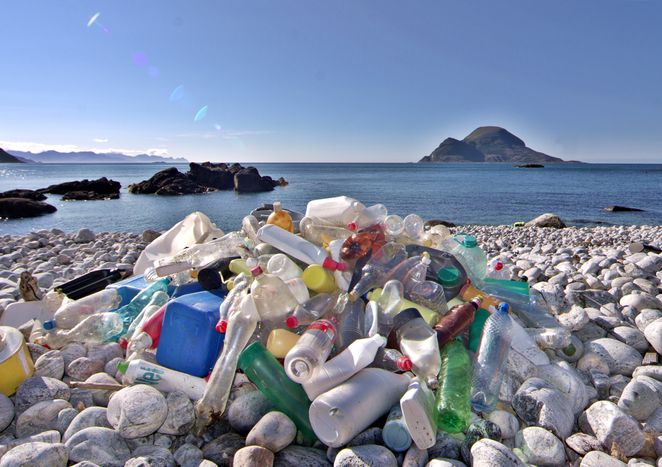
UNESCO, The Ecological Peace
Published on
The United Nations Educational, Scientific and Cultural Organization, also focuses its attention on the earth’s environmental problems. During a conference in Paris, entitled "Making peace with the earth", the urgency of the situation was emphasized by its participants.
Far from drawing out the present tendency of the media to stir up panic by establishing a feeling of guilt and resignation in the face of the threats of climate change, the UNESCO conference, "Make peace with the earth", sent out a clear and positive signal. And yet, something very important but often forgotten happened : solutions were proposed.
The theme of the conference echoes that of a work published under the same title in four languages: French, English, Spanish and Catalan.
What prospect for the planet? What future for the human race?
Be reassured, Hubert Reeves, the famous astrophysicist and writer, said it: the planet is not in danger! Global Warming does not jeopardize the possibility of life on Earth. Or it almost doesn’t …
This discourse supported by critics of sustainable development was, once and for all, ridiculed by Hubert Reeves during his speech. According to him, there is no doubt: if we do nothing to counter Global Warming, a huge wave of species’ extinction will fall on living species weighing more than 3kg, which consequently includes humans. And then, no drama here, is there ?
If the idea that the human species could one day be endangered wasn’t so alarming, it would almost be laughable. We, humans, who brag ourselves of being superior, would have achieved something unique : becoming the only species to provoke, by its evolution preocess, its own destruction.
The Ecological Footprint and the cow.
The consensus between participants was clear: it is urgent to invent new ways of development. This agreement was found despite their having diverse backgrounds: Javier Pérez de Cuéllar, former Secretary General of the United Nations and former Prime Minister of Peru; Souleymane Bachir Diagne, a distinguished Senegalese philosopher; Luisa Molina, researcher at the Massachusetts Institute of Technology (MIT), Chemistry Nobel Prize winner in 2004 and winner of the Volvo Prize for her work on the fight against urban pollution in Mexico; Mathis Wachernagel, co-inventor of the Ecological Footprint and contributor to WWF International’s The Living Planet Report; and the Canadian Hubert Reeves, research director at the National Centre for Scientific Research (CNRS – Centre National de la Recherche Scientifique).
Mathis Wackernagel explained in the most didactic manner ever the stakes of his co-invention, the Ecological Footprint..
Imagine that Humans affect their environment the same way a cow would do in a meadow. This bovine consumes the grass by eating it, benefits from it by digesting it, and then disposes of it converting it into waste. Since the cow does not consume more than what it can digest and, furthermore, as it contributes in fertilising the soil, it has a neutral ecological footprint on its environment.
This is where humans’ society varies, especially in a developed country. We consume excessively and we produce too much waste, which has environmental that we are not able to control (in the case of nuclear radioactive wastes, for example).
Ecological Debt
The usefulness of the ecological footprint can be easily assessed since it allows us to moderate our consumption according to the resources that our planet has to offer. To put it simply, the ecological footprint is obtained by subtracting from the natural resources of out planet (water, air, raw material, the soil’s fertility…) what we are using, taking into account the waste produced by this consumption.
All things considered, today, we are in ecological debt because we are using 20 % more than what the planet has to offer (and we even appropriate ourselves the part supposedly dedicated to other animals.) To take up Mathis Wackernagel’s distressing observation, should each Human consume as much as an American, we would need…6 planets!
Some Restraint
Since then, it should be realized at the international scale that we are living in the illusion that the resources of the planet are unlimited. As Huber Reeves explained, this has nothing to do with going back the Stone Age or preventing the countries with their right to develop. But, resources must be sustained. This is a need linked to the survival of our species, and thus an ethical duty towards the future generation.
Echoing Al Gore during his closing speech at the Grenelle de l’environnement “We only have one Earth.” The debate revealed, without taboos, something no one wanted to hear: Nature, is the only thing we possess, and , if we do not take more care of it, we will have nothing left. To take up the conclusion proposed by Bettina Laville (president of the NGO Vraiment Durable and honorary president of Comité 21), our duty is not only to take up the title of the conference, ‘Make peace with the earth,’ but rather to “Make peace with ourselves.”
Alessia Bertoli
Translation: Joanna Cordero



